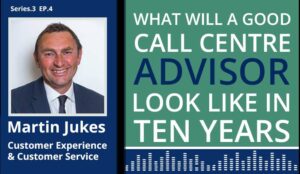Keep your workforce happy, loyal and productive with this guide to the ten most effective and inexpensive motivators around.
Number 10: Swap agents with other groups
During the quiet season, implement a departmental exchange programme where your contact centre’s separate teams “trade” several agents for a fortnight or so.
Your outbound department, for example, could make an exchange with inbound, who in turn could trade with QA, and so on.
Not only will this up-skill your agents, it will also give your employees the sense of progression they crave.
Number 9: Watch the hidden dress codes
To help break down the barriers and remove the intimidation many employees feel at approaching their managers, try to reduce the gradient on your hierarchical dress code.
The hidden dress code may not be anything that you are aware of, but it is certainly there. I bet your senior managers are generally more smartly turned out than your call centre agents.
As part of this process, allow your managers an only slightly more formal dress code than the team leaders, whose code should, in turn, be just slightly more formal than the floor agents.
When your low-level staff begin to feel comfortable speaking openly with their seniors, the improvement in your working atmosphere will be obvious to all.
Number 8: Telephony trust
One sure-fire way to zap the motivation from your floor agents is to have them stick stringently to the same old sales script day in, day out. Experienced agents develop a natural ability to sense the mood of the caller and adjust their service/sales patter accordingly; with this in mind, avoid penalising your agents for failing to adhere completely to your pre-set scripts*.
Allowing your agents to stray from their lines here and there will lend their calls the rare personal edge that your callers yearn for, and give variety to the agents’ otherwise monotonous working day.
*Please note, though, that certain sales scripts do need to be read verbatim, in order to minimise the chances of potential mis-sale.
Number 7: Seating security
Few things frustrate the eager young agent more than arriving for work in good time, only to find that their computer has been hijacked and there’s no alternative desk available (particularly troublesome for those arriving during the chaos of the daily shift-change).
So arrange a suitable seating plan, and stick to it. Your agents will appreciate the security of knowing that they can turn up for work, clock in and get down to business without having to battle for a workstation. Do be flexible, though; office politics are a fact of life, and no one benefits from co-worker hostilities, so implement a desk-trade process for those employees who just don’t get on with their immediate neighbours.
Number 6: Mutually beneficial performance rewards
Many employers seem to think that a good way to boost their agents’ KPIs is to hold competitions in which their daily top performers are rewarded with the chance to leave work early or come in late the following day. But if you have to motivate your employees by offering them time off work, all you’re really doing is suggesting that their job is not as enjoyable as it could be.
Instead, why not allow your winning agents to spend some time shadowing a department of their choice; if a vacancy should arise in the future, they’ll be in a good position to apply.
It boils down to free and interesting training for your winning agent and an up-skilled workforce for you – everyone’s a winner.
Number 5: In-house training
Offering your agents the opportunity to build up their talents need not be an expensive business.
From soft skills to enhanced local software training, free coaching materials are readily available online. Presented by an enthusiastic member of your training department and tailored as much as possible to your staff’s individual needs, these programmes will revive your employees’ attitude towards their working day.
Number 4: Field trips
There’s nothing like a trip out of the office to refresh your agents’ outlook and renew their interest in their role. And no, we’re not talking trips to the zoo, but fitting, relevant excursions to other sections of the business.
If your contact centre represents a major retailer, why not treat your agents to a training day at the warehouse? On the other hand, if your call centre acts on behalf of an accident/injury compensation outfit, a day trip to the local magistrates or small-claims court might educate your staff immeasurably.
Number 3: Different mindsets
Individuals generally fall into four categories:
- Theatricals (expressive characters who are hungry for recognition)
- Persistents (natural salesmen, often impatient and committed to reaching their goals)
- Genials (supportive, well-reasoned individuals)
- Jurors (methodical, investigative persons with a good eye for detail).
Simply put, while Theatricals can best be inspired through frequent assertions of gratitude and admiration, Persistents can be driven through tangible reward and constant challenge. Genials, on the other hand, appreciate trust, and often make very good “shadowees” for new staff, whilst Jurors will find motivation in being involved with your planning process.
So, rouse your inner psychologist, read up on personality types, and apply it to the different members of your team. You might just be rewarded with exciting results.
Number 2: Departmental jollies
Nothing helps lift the mood of a discontented contact centre quite like a good old bout of workplace entertainment. And no, I’m not referring to Keyboard Cricket or Roller Seat GP. Rather, try stimulating your agents into tackling the task at hand by introducing weekly work-based events or contests; a particular favourite is Call Centre Bingo, in which the first agent to receive a call from a pre-designated location wins. Constant winners could accrue and save up virtual points, which can then be spent on your company’s merchandise or, if you’re not a retailer, vouchers for a shop of their choice.
Do not make the mistake, though, of implementing call-time based competitions. Offering a prize to the agent with the shortest call time or most calls per hour will naturally affect the quality of service provided – and what customer wouldn’t smell something fishy when the agent they’re speaking to starts nattering like a rabid auctioneer?
Number 1: Trickle theory
Motivation starts at the top; a team leader who is constantly frustrated, fatigued or disinterested will not prove great inspiration for his or her agents. Ditto the shift managers to their subordinates, and ditto the chief executives to theirs.

George Dixon
So be enthusiastic in your role. Reward successes, no matter how small, and listen to the feedback your call centre provides.
Forget the Marketing department, nothing makes for better and less expensive customer research than the agents on the front line of your service war. After all, who could possibly gauge the mood of your customer base better than the folks you employ to speak to them every day?
So remember that your state of mind affects all who operate under your watch, and if you’re having a bad day, remind yourself of your responsibility. You will find that your new, enthusiastic outlook will trickle down to all sections of the business – with explosive results.
George Dixon is a freelance writer and regular contributor to Call Centre Helper.
Author: Jo Robinson
Published On: 3rd Aug 2011 - Last modified: 28th Jun 2024
Read more about - Customer Service Strategy, Employee Engagement, George Dixon, Motivation, Staffing, Top 10





































Hi, Im knew to this site, but have used it so much in the last 3 weeks. Its full of useful information. Thanks to everyone who contributes it really does make a difference